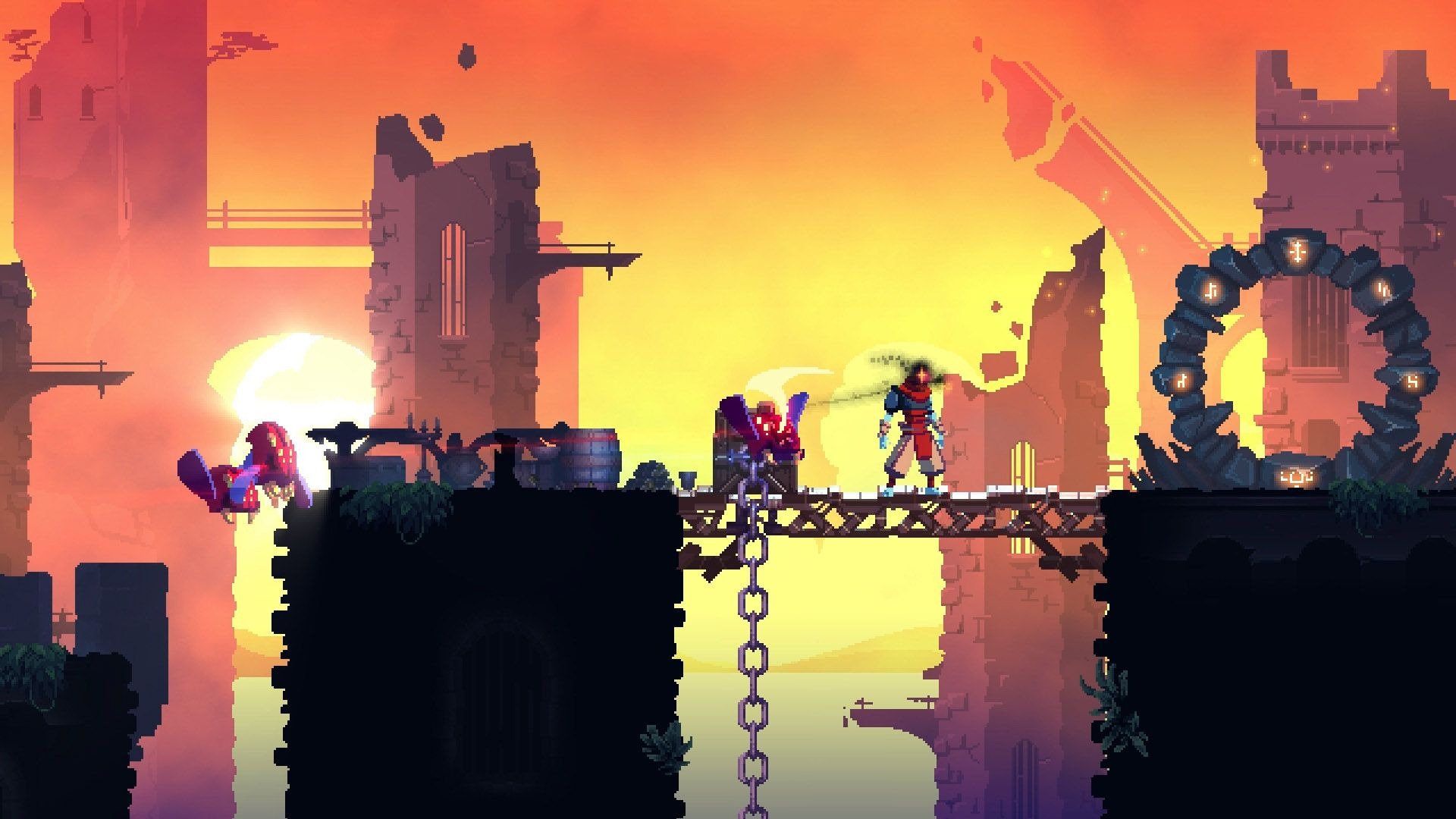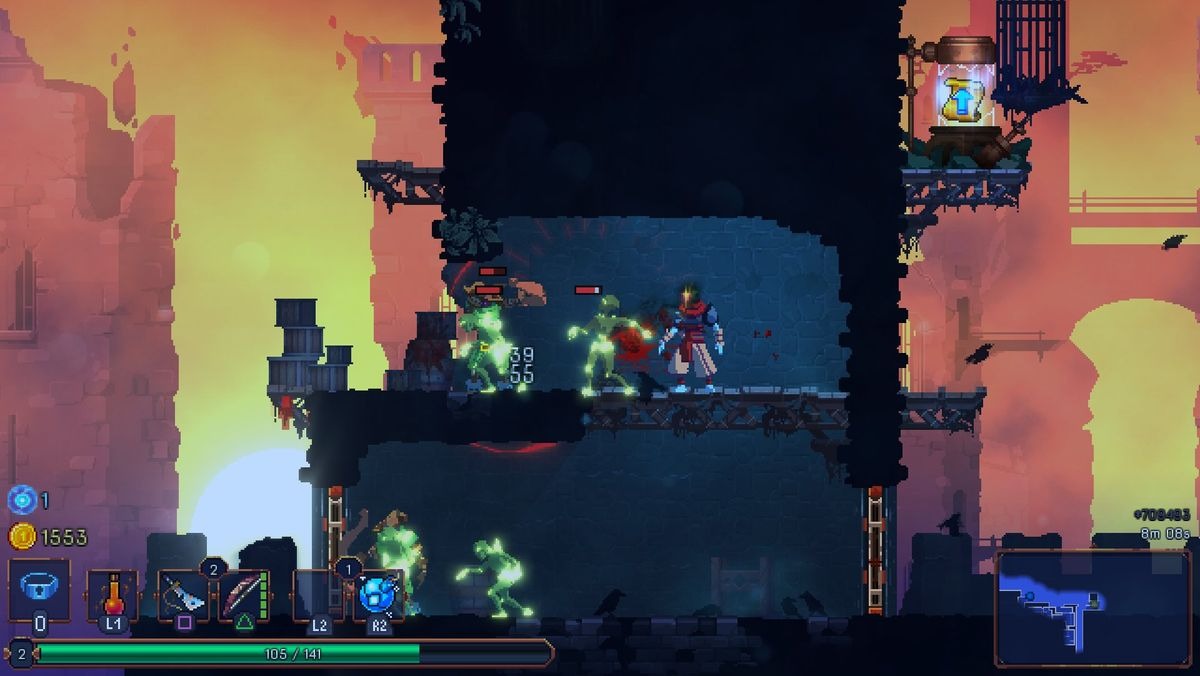Hades and the Illusion of Control: Why Fairness is the Core of a Great Roguelike
Popular Now
 R.E.P.O
R.E.P.O
 CarX Street
CarX Street
 Free Fire
Free Fire
 Brawl Stars
Brawl Stars
 Free Fire Max
Free Fire Max
 Genshin Impact
Genshin Impact
 Geometry Dash
Geometry Dash
 Auto X Drift Racing 3
Auto X Drift Racing 3
 Garena Free Fire: Kalahari
Garena Free Fire: Kalahari
 Rust
Rust 
In the world of video games, few genres are as synonymous with punishing difficulty and procedural randomness as the roguelike. The permadeath mechanic, the ever-changing dungeons, and the constant threat of losing all progress are what define these games. Yet, for a roguelike to truly succeed and retain players for hundreds of hours, it must achieve a delicate balance between chaos and control. The best roguelikes, from the cerebral deck-building of Slay the Spire to the lightning-fast action of Dead Cells, don’t just throw random obstacles at the player. They are meticulously designed to feel “fair.” This isn’t about being easy; it’s about ensuring that every death feels earned, every success is the result of skill, and the player never feels cheated by an unfair twist of fate.
The concept of fairness in a roguelike is not about a lack of challenge. It’s about player agency. A fair roguelike is one where an experienced player, equipped with a deep understanding of the game’s mechanics, can navigate any given run, no matter how “unlucky” the item drops or enemy placements may seem. This philosophy is perfectly embodied by titles like Hades, which has elevated the genre to new heights by perfecting the art of a “player-centric” design. By making sure that the player always has an interesting choice to make, whether it’s which boon to pick or which path to take, the game ensures that the player’s skill, not pure luck, is the ultimate decider of success.
 The Pillars of Fair Roguelike Design
The Pillars of Fair Roguelike Design
So what, specifically, makes a roguelike feel fair? It’s a combination of several key design principles that work in tandem to create a satisfying and addictive gameplay loop:
- Clarity and Readability: A player should always understand why they died. Was it a specific enemy attack? A trap they didn’t see? The best roguelikes, such as Dead Cells, have incredibly clear visual and audio cues. Every enemy attack is telegraphed, every trap has a distinct visual pattern, and every piece of loot has a clear function. This clarity allows players to learn from their mistakes and improve with each run, rather than feeling like they were defeated by an unknown force.
- Meaningful Progression: Permadeath can be a brutal mechanic, but it’s made palatable by persistent, long-term progression. In Hades, every failed escape attempt provides you with keys and gems that you can use to unlock new weapons, permanent upgrades, and story content. The “feeling of futility” is eliminated because even a short, disastrous run contributes to your overall strength. This a powerful psychological tool that keeps players coming back, even after a frustrating defeat.
- Balancing Randomness with Choice: The core of a roguelike is procedural generation, but this randomness must be carefully managed. The most successful games use procedural generation to create unique layouts and item sets while still guaranteeing a playable and interesting run. For example, Hades’ “Chaos Gate” mechanic allows players to choose between multiple boons, ensuring that even if the random selection isn’t ideal, the player still has some agency over their build. The game never presents a choice that makes a run impossible, only one that forces the player to adapt and strategize differently.
- A “Safety Net” for the Player: Game developers often sneak in subtle design tricks to make a game feel more forgiving than it actually is. Dead Cells, for instance, has a “just-in-time jump” mechanic that gives the player a fraction of a second to complete a jump even after they’ve left a platform. These small, unnoticeable adjustments remove moments of “unfair” frustration, making the game feel incredibly responsive and reliable. It’s an illusion of control, but it’s an essential one that makes players feel like they are in command of their destiny, not at the mercy of the game’s code.
Ultimately, the best roguelikes are not about fighting an endless, random tide of enemies. They are about mastering a complex set of systems and proving your skill against a dynamic, ever-changing environment. Hades and Dead Cells are celebrated not because they are easy, but because they are “tough but fair.” They tell the player, “You died because you made a mistake, not because you got unlucky.” This subtle but critical distinction is what turns a good roguelike into a timeless classic, forging a bond of trust between the player and the game that makes every restart feel like a new, exciting challenge rather than a pointless chore.










 The Pillars of Fair Roguelike Design
The Pillars of Fair Roguelike Design